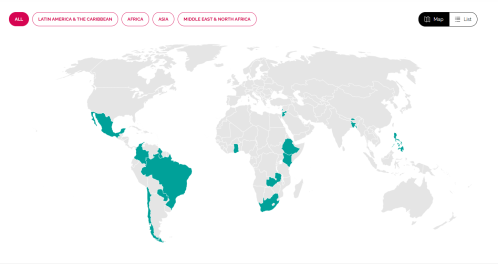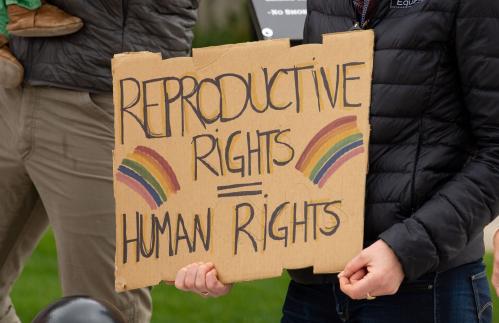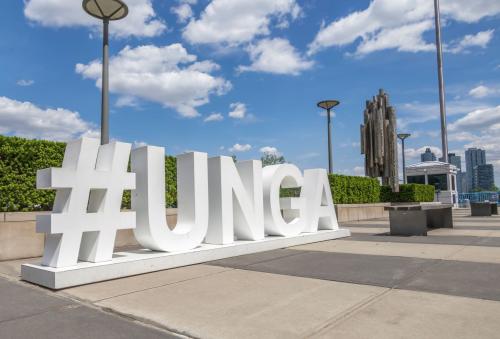Why civil society? Why now? That we are debating civil society, its meaning and purpose, is in and of itself fascinating and important. Civil society as a concept has a long and uneven history. For the political philosopher Hegel, it signified a realm of markets and competition and contract whose divisions would be healed over only when the citizen entered the most universal of all ethical realms, that of the state. Civil society, in the Hegelian scheme of things, is a higher realm than that of individuals and families, but definitely lower in the overall picture than the more complete and perfect entity, the state. This European (or, perhaps, more properly “Germanic”) way of talking about civil society is not what those claiming the term for contemporary American political debate have in mind, however. For the most part, civil society in our context signifies a sphere of associational life that is, yes, “more” than families and “less” than states, and therein lie precisely its virtues rather than its defects or inadequacies. Americans have always been far more suspicious of the state and concentrations of power at the center than were European state-makers in the heroic era of state creation and legitimation.
By civil society we have in mind the many forms of community and association that dot the landscape of a democratic culture—families (for we often put the family in civil society, although it is lodged there rather clumsily), churches, neighborhood groups, trade unions, self-help movements, volunteer activities of all sorts. Historically, political parties, too, were part of this picture, part of a network that lies outside the formal structure of state power. Observers of American democracy have long recognized the vital importance of civil society thus understood. Some have spoken of “mediating institutions” that lie between the individual and the government or state, locating each of us in a number of little estates, so to speak, which are themselves nested within wider, overlapping frameworks of sustaining and supporting institutions. This densely textured social ecology was—and remains—the ideal. For civil society is a realm that is neither individualist nor collectivist. It partakes of both the “I” and the “we.”
Democratic theorists (not all, but most) have issued cautions over the years that America as a democratic culture is perhaps uniquely dependent on vital peripheries, reliant on the vibrancy of political spaces other than or beneath those of the state. These included, of course, town councils and governmental structures of all sorts. But the aim throughout was to forestall concentrations of power at the core or on the top. This is the argument associated with Alexis de Tocqueville in his much cited classic, Democracy in America: only many small-scale civic bodies enable citizens to cultivate democratic virtues and to play an active role in the drama of democracy. Such participation turns on meaningful involvement in some form of community, by which is meant commitments and ties that locate the citizen in bonds of trust, reciprocity, mutuality, competence for the task at hand.
Civil Society’s Critics
This all sounds good. Too good to be true, argue some critics, who believe that the current civil society talk is at best a big evasion, at worst a pernicious invitation to triumphant localism. What is being evaded, in the critics’ view? The legitimate role of central government, for one thing, for there are tasks only the federal government can, or perhaps should, undertake. This compelling criticism can be addressed and worked out, it seems to me, by noting the ongoing complexities of our federal system. As one example, a spate of Supreme Court decisions this past summer has had, among other things, the effect of opening the door to a revitalization of federalism, even state sovereignty or multiple sovereignties. When I was studying constitutional law in the early 1970s, federalism was considered pretty much a dead letter. Nobody gave a hoot about the 10th Amendment then. Now it is all the rage. Anthony Lewis, writing in the New York Times, dislikes the recent decisions, by “willful members of the Supreme Court” using “strained and rigid readings of the Constitution to strike down New Deal legislation as beyond Federal power.” According to Lewis and other representatives of the New Deal type of big government liberalism, the Court is up to nothing less than rolling back history. But for some little government and libertarian conservatives, the Court hasn’t gone nearly far enough. As long as the Constitution exists, this movement back and forth is virtually guaranteed.
The Accusation of Nostalgia
The civil society skeptics have other arrows in their quiver, however. The one most commonly shot—rather indiscriminately—skyward is what might be called the Accusation of Nostalgia. I hear it so often that I have an outstanding wager that not a Q-and-A post-lecture or panel discussion will go by without at least one (often rather agitated) member of the audience jumping up to denounce fuzzy-minded evocations of a “Golden Age” and to remind me that there was such a thing as slavery, that awful things happened to Native Americans, that women for many years did not get to vote, and so on. Until recently, I responded with a predictable (and honest) set of caveats. No, this isn’t about a Golden Age. Of course, I know many bad things happened and are happening in America. No, I don t think bigots should have a free hand. Of course, the Bill of Rights remains intact together with the enforcement of subsequent civil rights legislation. This means that the Ku Klux Klan (which comes up frequently, I find, as a peril if there is too much “localism”) and others are hauled into court.
But it strikes me increasingly that my shopping list of caveats is rather beside the point. For surely my interlocutors know that I know what they are telling me: that we need a federal government; that we must sometimes override “localism” in favor of something else; that a robust civil society isn’t a cure-all and never was. I have decided that the Accusation of Nostalgia is not, after all, a response to my ostensible naiveté or tendency to gloss over past wickedness to skew an argument in my favor—which is what I long figured to be the case. It is about nostalgia. But it isn’t mine, or that of other civil society advocates. Rather, it is a yearning on the part of the questioner himself or herself for a world without trade-offs and limits and political opponents with some clout that challenge the presuppositions of what might be called triumphant progressivism. What do I mean? I mean a stubborn refusal to come to grips with the fact that federal-government-centered solutions don’t solve all problems or even, more disturbingly, that not all of our problems are fixable. The reality being avoided isn’t just that one size doesn’t necessarily fit all. It is that many of our troubles are troubles that will plague any mass postindustrial democracy. Civil society isn’t so much about problem solving as about citizen and neighbor creating. Then and only then will we work together on other desired ends.
At one point in the not-too-distant past, those who called themselves progressives embraced the whole Idea of Progress as our version of the Marxist forward march of history to a predetermined goal. Things would get bigger and they would get better. We would become more rational and, as we did so, “local” attachments (often called parochial), commitments to family, religion, and neighborhood (often called backward), would fade. But that hasn’t happened. Not only has it not happened, we are now in the midst of a reaffirmation and reassertion of particular identities and commitments, as in the classical Hegelian schema. We know that these can take unpleasant forms. But no civil society thinker wants a world in which there is only civil society—and the whole vast panoply of federal laws and their enforcement has been repealed. Making this clear, however, doesn’t satisfy those hurling the charge of nostalgia.
But there is more—more nostalgia from those who accuse civil society thinkers of hankering for the “good old days.” It goes like this. Much of 1960s politics was about “Thinking Big” in yet another sense. It was about what were called “movements.” The civil rights movement, the antiwar movement, the student movement, the women’s movement. Politics was happening, it appeared, only when tens of thousands of people took to the streets, sometimes in the name of non-negotiable demands. But movement politics is inherently unstable, ephemeral, and geared toward publicity. The movement politics that had the greatest staying power is that which is institutionally tethered, as in the Southern Christian Leadership Conference’s mooring in black Baptist congregations. Many of those lodging the Nostalgia Complaint are themselves hankering for a return to big movement politics, it seems. It follows that civil society looks too, well, small; too modest; even, perhaps, too ameliorative.
But you don’t have to be Max Weber, with his famous definition of politics as the patient boring of hard boards, to have arrived at the recognition that building and sustaining decent institutions is at the heart of the democratic matter. And movements don’t do that—don’t build those ties of trust, reciprocity, accountability, mutual self-help over time. No, but institutions, sturdy but resilient institutions of democratic civil society, do. These institutions are, by definition, based on both giving and receiving; on creating a structure of expectations and molding reasonable and decent ways to meet those expectations.
A Job We Can’t Give to the Government
Civil society creates spaces for the enactment of human projects, yes, but it also reminds us that this is a world of ties that bind. You cannot have all the good things of democratic life and culture without accountability and duty. Isn’t that what the “nostalgia” rebuff is finally all about? We want all sorts of things “solved” once and for all by policymakers and experts and others who will do this job for us. But civil society reminds us of what political philosopher Hannah Arendt called the “elementary problems of human living-together.”
In an era—our own—when there is widespread agreement that American democracy is in some trouble, when a mountain of data has been offered up displaying our civic depletion and cynicism, we do well not to yearn for the confident reassurance that government can get things right if we but let it and give it leave to do its job. Government can help or hinder. But it is finally a task for the overlapping, plural associations of civic life in which citizens build and pass on those formative institutions—families, schools, churches, unions, and all the rest, including state and local governments—without which there is no democratic culture and, indeed, nothing for the federal government to either correct or curb or serve.



Commentary
Not a Cure-All: Civil Society Creates Citizens; It Does Not Solve Problems
September 1, 1997